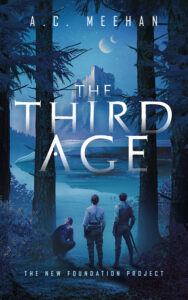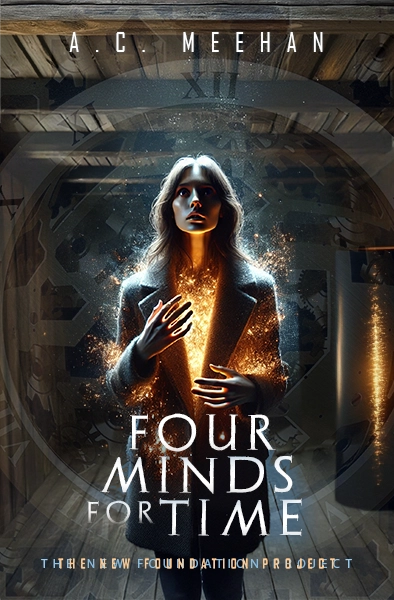If you take the old advice to “write what you know” literally, the limits it imposes are severe. At the most literal level, it would seem to restrict all writers to autobiography (or fictionalized autobiography) and research papers. I promise you, my autobiography would not interest anyone.
Of course it isn’t literal. People write about what other people know all the time. I’ll go out on the ol’ limb and guess that most writers of murder mysteries have never witnessed, investigated, or solved a murder. Hopefully very few have been perpetrators. (And I think I’m on safe ground to say none have been victims. At least not until after finishing the draft.)
For a long time, I saw the advice as restrictive. Fortunately, now I see it differently—and writing science fiction and fantasy stories is a natural fit. So if the axiom doesn’t really mean you can only write about your own life, what does it mean? When you rephrase the guidance, the possibilities become a lot clearer.
Write about characters you understand
Sometimes it works really well to take this literally. It worked for Louisa May Alcott. Little Women was semi-autobiographical, and she knew what life was like for the kind of girls she wrote about. Taken too literally, it’s terrible. There are people who seem to be very upset if writers try to inhabit perspectives other than their own. There’s often an almost belligerent attitude that we have no right to do that, and that the attempt somehow diminishes or disrespects someone. That’s a bleak statement on humanity’s ability to empathize, and certainly discounts the beneficial possibilities of imagination. One of the most wonderful things about fiction is that it can help us see the world through someone else’s eyes, which is how empathy begins. When it’s done in good faith, I think the effort is probably as valuable as the result. We all need practice.
Write about places you’re familiar with
I suppose if you are writing about a real place, it’s poor form to get it horribly wrong. But the thing about fiction is that most of the time, even stories that take place in the real world are set in imagined places. I could set a story in Rome and refer to the proper landmarks, but the characters would live in a home that would be some approximation and amalgamation of what I’ve learned about Rome. And—a matter of preference here—I’m usually annoyed when authors make too much of a Big Deal about their location scouting. It often comes across like name-dropping.
Write about topics and situations you know
It’s off-putting to read a story about a chess champion if the author doesn’t know that it’s not the same as checkers. This is where “suspension of disbelief” can be quicksand. In “real world” stories, the reader will sink if they catch a factual error. In “imagined world” stories, contradictory details in the world-building will do it. This is why fiction writers have to do research, too. Details matter for making things feel real.
So what do I know?
What I finally realized as I started getting some grey hair is that “write what you know” actually offers great scope if you believe that the human experience has some common elements and if you believe that imagination and empathy are connected. I do.
The stories that I find satisfying are often those that explore the human experience. As I’ve said elsewhere, science fiction and fantasy give me a chance to build a world that creates the right setting and circumstance to explore “being human” in any dimension I’m interested in. I can create characters whose perspectives best illustrate that dimension. And I can research or invent the details I need. So what I’m really writing about is how people experience life.
I am human. (I know. Sometimes it surprises me, too.) So I know what it’s like to have thoughts, feelings, interactions, sensations, set-backs, triumphs, good days, bad days, and all the rest. As long as my stories are about characters having experiences like that, I am writing what I know.
Image by Willfried Wende from Pixabay




